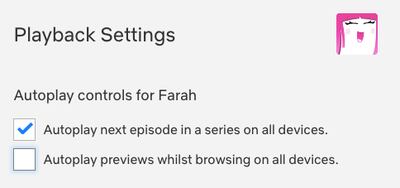As Stranger Things 4 fever sweeps the internet, the risk of spoilers is real. One site that should be safe from the peril of (unwanted) previews, however, is Netflix.
The streamer's Help Centre has a handy guide that shows how to turn autoplay previews on or off, whether you're using iPhones, iPads, Android phones or tablets, or web browsers.
Amazon Prime and Apple TV+ also show previews on select shows. Here's how to turn them off:
Turning Netflix autoplay previews on or off on an iPhone, iPad, Android phone or tablet
- On the app's home screen, tap your profile icon on the top right of the screen.
- Tap “Manage Profiles” or the pencil icon and select the profile you want to adjust.
- Scroll down to “autoplay previews” and move the toggle to turn them on or off. You can also turn off next episode autoplay here, too.
- To save changes, hit Done.
Note: If you have more than one Netflix profile, you'll need to change for each.
Turning Netflix autoplay previews on or off on web browsers

- From a web browser, click your profile icon on the top right of the screen.
- Click the Account option.
- Click the down arrow in the Profile & Parental Controls menu of the account you want to make changes to.
- Click “playback settings”.
- Check the 'autoplay previews while browsing on all devices option to keep previews, or uncheck the box to turn them off.
Note: Changes are applied to the account across all devices. You may need to log out and back in to apply the update.
Turning off Apple TV+ previews
To turn off previews on Apple TV+, go through the following steps on Apple TV:
Settings > General > Accessibility > Motion > Auto-Play Video Previews and turn that off.
On iPhones or iPads, take the following steps:
Settings > Accessibility > Motion > Auto-Play Video Previews and move the toggle to turn that off.
Turning off Amazon Prime Video previews
Previews played at the end of all Amazon Prime shows and there currently doesn't seem to be a function that turns them off. However, you can download browser extensions, such as Refined Prime Video on Chrome.
Once downloaded and added to your browser, the extension blurs episode thumbnails, skips shortcuts to trailers and hides show descriptions of unwatched episodes, all in a bid to avoid spoilers.
Netflix says a worldwide password crackdown is coming
The days of sharing family members' Netflix accounts may soon be over. In April, the streaming service hinted in its shareholder letter that a global crackdown on password-sharing is on its way.
Netflix said it estimates that more than 30 million US and Canadian households are using a shared password and that more than 100 million more households around the world are probably using a shared password.
“This is a big opportunity as these households are already watching Netflix and enjoying our service,” the company's letter said.
“Sharing likely helped fuel our growth by getting more people using and enjoying Netflix. And we’ve always tried to make sharing within a member’s household easy with features like profiles and multiple streams. While these have been very popular, they’ve created confusion about when and how Netflix can be shared with other households.”
In the letter, the platform also referred to a pilot programme launched in March in Latin America concerning paid sharing features, including the option to pay to share Netflix outside of your own household.













